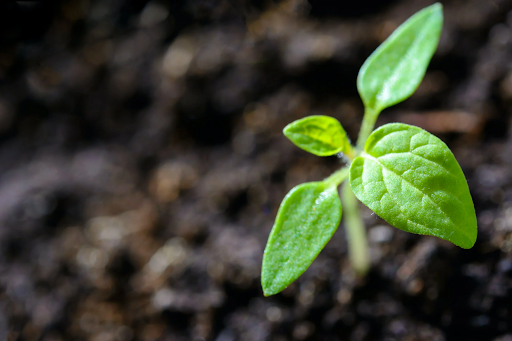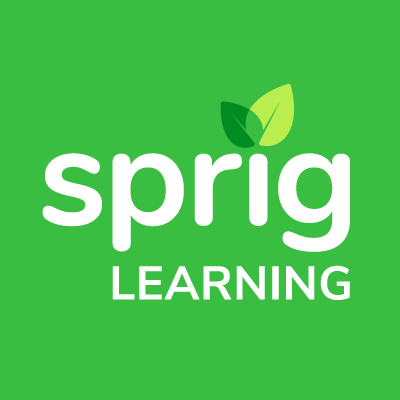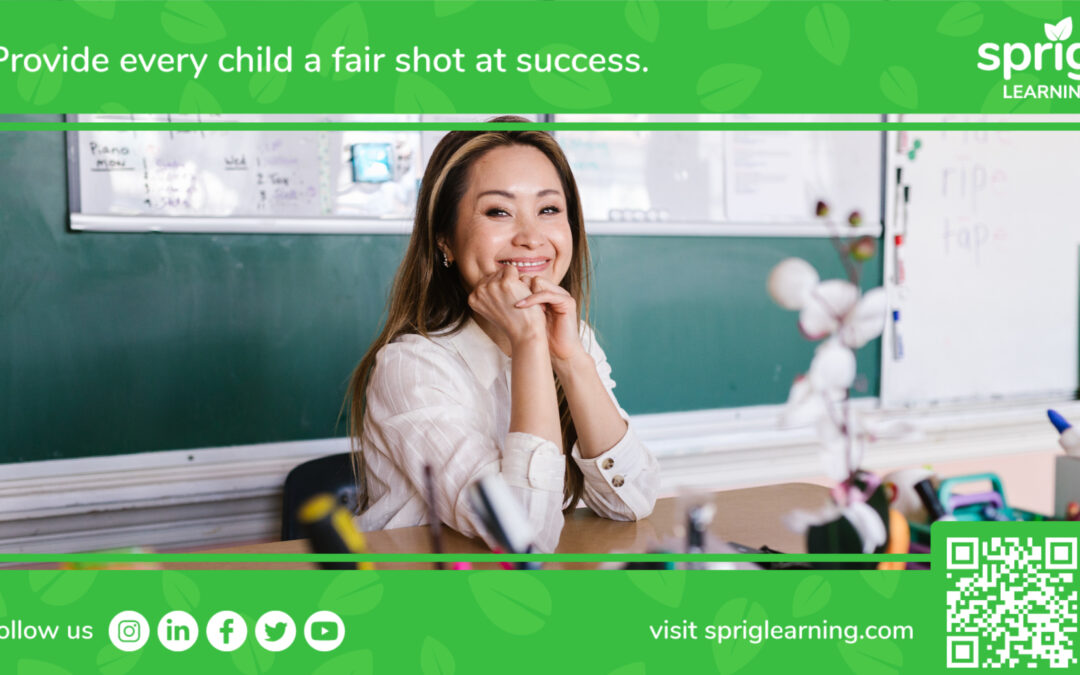Student assessment is one of the most critical aspects of early learning. So critical in fact, that Sprig has dedicated an article to just assessments in early childhood education.
Educators who consistently use formative assessment strategies are shown to double the speed of learning for students in their classroom.
While the link between assessment and early learning is clear, there is a lot left to be desired with the data that is being collected.
Traditional assessments only capture two perspectives: the teacher and the student. This leaves a gap in our understanding of early learning that occurs outside of the classroom unidentified.
They are also prone to bias which has a negative impact on learning during the formative early years of learning.
There are many key people supporting student learning outside of school, so how can these perspectives be included and understood?
How can the potential of biased data be mitigated?
Holistic learning provides an answer to both of these questions, by way of holistic formative assessments.
Holistic learning integrates multiple learning components in its thinking, focusing on the whole learner. It pays significant attention to experiential learning and aims to help students reach their maximum potential.
Holistic assessment engages key actors and can inspire communities and caregivers to participate in a child’s learning so that children can reach their greatest potential. This benefits both students and educators by promoting caregiver and community participation.
What Does Holistic Assessment Mean for Future Learning?

A child’s early life experiences are proven to have a lasting impact on their development and future learning success. For this reason, early years assessment data needs to be collected accurately and holistically.
Every stakeholder in a child’s learning benefits from comprehensive assessments.
Caregivers are empowered to help their children learn well, and instructors benefit from caregiver and community support while receiving access to better data that enhances instruction.
True personalized learning can finally be realized with improved data, an ambitious goal that education institutions throughout the world are aiming to meet.
With personalized learning still in its early stages, a comprehensive approach to assessments can hasten its progress.
In order for personalized learning to be effective, accurate and comprehensive information is required to define the needs of the learner.
A holistic approach to assessment enables this in three ways.
Increased Breadth of Information
First, by broadening its scope to identify learning in the home, community, land (and school), holistic assessment always provides new insights into a child’s learning. New information emerges about each learner that may have never been asked or identified, and supports instruction in the classroom.
Mitigation of Bias
Second, a holistic assessment provides more accurate information through its more natural and formative approaches. Through the provision of culturally enabling tools and implementation, holistic assessments are able to break down explicit and implicit biases during the assessment, creating a more natural and supportive environment for students to demonstrate their skills and abilities.
Coverage of All Foundational Skills
Third, holistic assessments not only include learning from multiple places and from multiple perspectives, but it also focuses on the essential skills, which greatly enhance student performance.
Literacy and numeracy, for example, are foundational; thus, holistic assessments look at all of the foundational skill sets that go into language, reading and math acquisition.
What Research Supports Holistic Education?

The holistic approach is rooted in Canadian First Nations teachings and the lifelong learning model – both products of research from the Canadian Council on Learning.
Indigenous people in Canada have long understood the role that learning plays in building healthy, thriving communities and despite significant cultural and historical differences, Canada’s First Nations, Inuit and Métis people share a vision of learning as a holistic, lifelong process.
“We have constantly measured the wrong things against a different paradigm — leading inevitably to an assessment of failure.” – Canadian Council on Learning
Though developed with and for Indigenous peoples in Canada, the holistic approach can be applied to students of all cultural backgrounds.
In fact, two of the top performing education systems in the world thrive using aspects of the holistic approach and lifelong learning model.
Education systems everywhere are teaching a lifelong learning mindset so students can keep up in a fast-paced, digital world. It’s perhaps time learning systems adopt the same mentality for early years assessment.
Technology is an important component in ensuring that a holistic approach to assessment and learning is applied effectively. Technology makes it simple for teachers, caregivers, and community members to stay up to date on where and how their students are learning. Assessment findings may be aggregated and curated by technology, making them conveniently available to all learning influencers.
Furthermore, from the standpoint of a student, connecting with technology in early assessment is critical to establishing the digital literacy that is necessary for future academic, social and economic success.
Why Should Teachers Advocate a Holistic Approach to Early Years Assessment?

With more comprehensive and accurate information available, a holistic approach assists in identifying each student’s learning strengths.
It encourages instructors to help students in using their talents to overcome their obstacles in various educational settings. This enables instructors to differentiate instruction for every child.
A holistic approach to assessment yields better results and distributes the responsibility of educators by engaging caregivers.
In fact, the positive impact of caregiver involvement has long shown to produce higher student achievement.
By connecting caregivers and the community to learning in the classroom, caregivers are able to complement the child’s learning path with community and home-based activities.
For more information about a holistic approach to assessment or holistic education, send us an email at letstalk@spriglearning.com.

